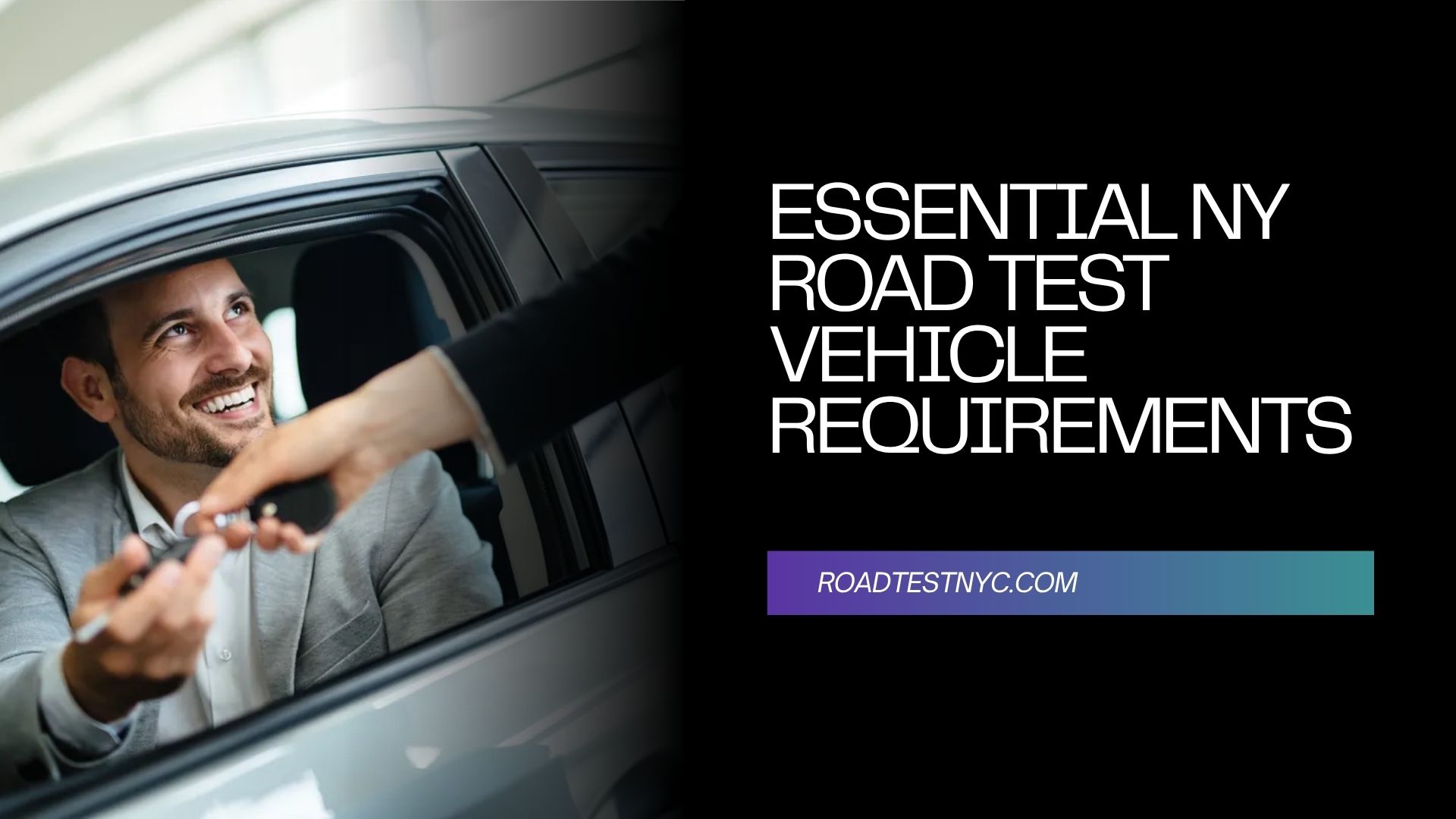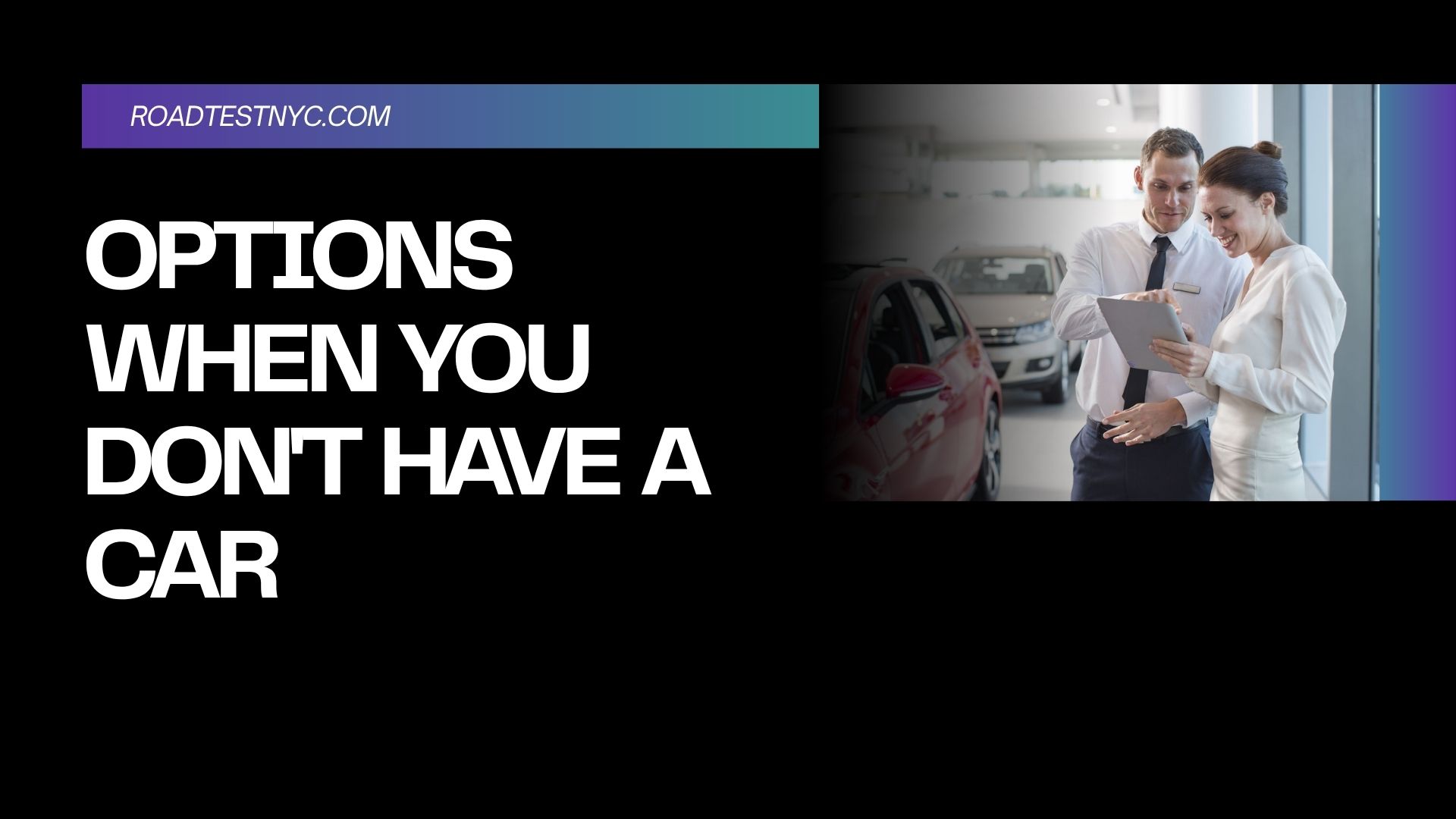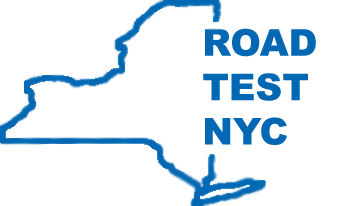Choosing the right vehicle for your New York road test can make the difference between passing on your first attempt and having to reschedule. Many new drivers underestimate how critical this decision is, focusing solely on their driving skills while overlooking the vehicle requirements that could derail their test before it even begins.
The New York Department of Motor Vehicles has strict standards for road test vehicles, and showing up with the wrong car-or one that doesn't meet their requirements-means automatic test cancellation. This comprehensive guide will walk you through everything you need to know about selecting, preparing, and using the perfect vehicle for your NY driving test.
Do You Need Your Own Car for NY Driving Test?
Yes, you absolutely must provide your own vehicle for your New York road test. The DMV does not provide cars for driving tests, making it your responsibility to secure an appropriate vehicle that meets all state requirements.
This policy exists because the DMV wants to test your ability to operate a vehicle you'll actually be driving after receiving your license. Additionally, providing test vehicles would create massive logistical and insurance challenges for the state across hundreds of testing locations.
The good news is that you have several options for obtaining a suitable road test vehicle, and you don't necessarily need to own the car yourself.
Your main options for getting a road test car include:
- Using a family member's or friend's vehicle
- Renting from a driving school that provides road test cars
- Renting from select car rental companies
- Borrowing from a licensed driving instructor

Essential NY Road Test Vehicle Requirements
The DMV examiner has the authority to cancel your test immediately if your vehicle doesn't meet New York State requirements. Understanding these standards is crucial for avoiding disappointment on test day.
Documentation requirements form the foundation of vehicle compliance. Your car must display valid registration, current insurance coverage with a clearly visible insurance disc showing the registration number and policy dates, and current inspection stickers. If any documentation has expired or appears faded, replace it before your test.
Safety and mechanical requirements ensure the vehicle is roadworthy and safe for testing. All signal lights must function properly, emergency brakes must work correctly, rear view mirrors must provide clear visibility, and windows should roll up and down easily. The horn must be functional, tires properly inflated with adequate tread, and the front passenger door must open smoothly from both inside and outside.
Test-specific requirements include displaying a red "L for Learner" sign at least 15 centimeters high, maintaining a clean interior especially in the front passenger area, carrying no unnecessary load or passengers, and having no video or audio recording devices present.
|
Requirement Category |
Specific Requirements |
Pass/Fail |
|
Documentation |
Valid registration, current insurance disc, inspection stickers |
Must Pass |
|
Safety Features |
Working signals, emergency brakes, mirrors, horn |
Must Pass |
|
Vehicle Condition |
Clean interior, proper tire condition, functional doors/windows |
Must Pass |
|
Test Compliance |
Red L sign, no recording devices, no extra passengers/cargo |
Must Pass |
|
Examiner Safety |
Clean front passenger seat, functional seatbelt, clear visibility |
Must Pass |
Vehicle Size and Type Considerations
The size and type of vehicle you choose significantly impacts both your comfort level during the test and the examiner's ability to evaluate your driving skills effectively.
Compact and mid-size sedans typically work best for road tests because they're easier to maneuver, provide good visibility for both driver and examiner, and feel less intimidating for nervous test-takers. These vehicles also make parallel parking and other precise maneuvers more manageable.
Larger vehicles like SUVs, pickup trucks, and full-size vans can create challenges during your road test. They require more effort to control, have larger blind spots, and may make the examiner uncomfortable if they're not used to riding in such vehicles. The added height and weight can also make precise movements more difficult for new drivers.
Best vehicle types for NY road tests:
- Compact sedans (Honda Civic, Toyota Corolla)
- Mid-size sedans (Honda Accord, Toyota Camry)
- Small crossovers with good visibility
- Hatchbacks with rear visibility
- Well-maintained older vehicles with modern safety features
Vehicle types to avoid:
- Large SUVs and pickup trucks
- Sports cars with limited visibility
- Vehicles with manual transmissions (unless specifically testing for manual license)
- Cars with significant mechanical issues or warning lights
Insurance Requirements and Owner Presence
You do not need to be listed on the insurance policy to use a vehicle for your road test, but the vehicle must have valid, current insurance coverage. The policy holder should provide you with proof of insurance, and you may need to sign a statement affirming the coverage is valid and sufficient.
The car owner does not need to be present during your actual road test, but they must be available to drive you to the test location if you don't yet have a license. This is particularly important to consider when planning your test day logistics.
Insurance documentation requirements include displaying the original insurance disc clearly showing the vehicle's registration number and policy dates. If the information on the disc appears faded or unclear, request a replacement from the insurance company before your test date to avoid any complications.

Options When You Don't Have a Car
Not having access to a family car doesn't mean you can't take your road test. Several options exist for securing an appropriate vehicle, each with different costs and benefits.
Driving school vehicle rental is often the most convenient option. Many NYC driving schools offer road test car rental services, providing vehicles that definitely meet all DMV requirements and often include a brief practice session before your test.
Traditional car rental companies typically don't allow their vehicles to be used for driving tests, but some smaller, local rental agencies may accommodate this request. Always verify their policy and ensure they provide the necessary documentation.
Borrowing from family or friends remains the most cost-effective option if available. Ensure the vehicle meets all requirements and that you're comfortable driving it before test day. Practice in the exact car you'll use for the test to familiarize yourself with its specific handling characteristics.
NYC driving schools offering road test cars with estimated pricing:
- Full-service driving schools: $150-$250 (includes car + instructor pickup)
- Car-only rental services: $100-$150
- Driving lesson + test car packages: $200-$300
- Last-minute rental services: $175-$275
- Weekend/holiday rates: Add 20-30% premium
- Book a car for your road test through our verified partners
Preparing Your Vehicle for Test Day
Pre-test vehicle inspection should happen at least one week before your scheduled test. Check all mechanical systems, clean the interior thoroughly, and address any issues that could cause problems. Don't wait until the morning of your test to discover a burnt-out tail light or other fixable problem.
Required documentation to bring includes your learner's permit, pre-licensing course completion certificate, vehicle registration, proof of insurance, and any other paperwork specified in your test confirmation. Keep all documents organized and easily accessible for the examiner.
Last-minute preparation tips focus on details that could make or break your test. Arrive early to allow time for the vehicle inspection, ensure the front passenger seat and seatbelt are clean and functional, and remove any personal items that could distract or clutter the testing environment.
10-Point Vehicle Preparation Checklist:
- ✓ Test all lights (headlights, taillights, turn signals, hazards)
- ✓ Check tire pressure and tread condition
- ✓ Verify emergency brake functionality
- ✓ Clean interior, especially front passenger area
- ✓ Ensure all mirrors are properly adjusted and clean
- ✓ Test horn operation
- ✓ Confirm all windows roll up/down smoothly
- ✓ Display red "L" sign prominently
- ✓ Remove unnecessary items and passengers
- ✓ Organize all required documentation
Regional Considerations for NYC vs. Long Island vs. Upstate
Location affects vehicle choice because different regions present varying challenges. NYC tests often involve heavy traffic and tight spaces, while Long Island tests may include more highway driving, and upstate locations might feature rural roads and different weather conditions.
Traffic and road conditions in your testing area should influence your vehicle selection. Dense urban areas benefit from smaller, more maneuverable vehicles, while areas with more highway testing might favor cars with better acceleration and highway stability.
|
Region |
Recommended Vehicle Type |
Key Considerations |
|
NYC (5 Boroughs) |
Compact sedans, small hatchbacks |
Tight parking, heavy traffic, narrow streets |
|
Long Island |
Mid-size sedans, small crossovers |
Mixed driving conditions, some highway portions |
|
Upstate NY |
Various sizes acceptable |
Less traffic, potential weather considerations |
Understanding what the driving examiner will look for in your specific testing region can help you choose the most appropriate vehicle and prepare accordingly.
What Happens if Your Car Fails Inspection?
DMV examiner authority includes the power to cancel your test immediately if they determine your vehicle doesn't meet safety or legal requirements. This decision is final, and you'll need to reschedule your test for another day.
Steps to take if vehicle is rejected include addressing the specific issues identified by the examiner, gathering proper documentation or repairs, and rescheduling your test. Don't argue with the examiner's decision-focus on fixing the problems and trying again with a compliant vehicle.
Expert Tips from Road Test NYC
Professional recommendations from experienced driving instructors emphasize choosing a vehicle you're already comfortable driving rather than borrowing an unfamiliar car just because it's newer or nicer. Familiarity with the vehicle's handling, visibility, and controls often matters more than having the latest model.
Common mistakes to avoid include showing up with a dirty car, forgetting required documentation, choosing a vehicle that's too large or unfamiliar, and not practicing in the exact car you'll use for the test. These easily preventable errors cause unnecessary test failures.
5 Pro Tips for Choosing the Perfect Road Test Vehicle:
- Practice extensively in your chosen vehicle before test day
- Select a car with excellent visibility and easy-to-use controls
- Ensure the vehicle is slightly smaller rather than larger if you're unsure
- Choose reliability over flashiness-a well-maintained older car beats a problematic newer one
- Consider the specific challenges of your testing location when making your selection
Conclusion
Selecting the right vehicle for your NY road test requires careful consideration of DMV requirements, your comfort level, and practical logistics. Remember that the best vehicle is one that meets all legal requirements, feels comfortable to drive, and allows you to demonstrate your skills confidently.
Whether you're preparing for your basic road test or need assistance securing an appropriate vehicle, Road Test NYC provides comprehensive support to help you succeed on your first attempt. Don't let vehicle selection become the obstacle that prevents you from getting your license-plan ahead, prepare thoroughly, and choose wisely.
Frequently Asked Questions
-
Does the DMV provide cars for driving tests in NY?
No, the New York DMV does not provide vehicles for road tests. You must bring your own car or rent one from a driving school or other approved provider. The vehicle must meet all DMV requirements and pass inspection before your test begins.
-
Can I use any car for my NY driving test?
Not every car is suitable for NY driving tests. The vehicle must have valid registration, current insurance, working safety features (lights, brakes, mirrors, horn), clean interior, and display a red "L" learner sign. The DMV examiner will inspect the car and can cancel your test if it doesn't meet requirements.
-
Do I need to be on the car insurance to take a driving test?
No, you don't need to be listed on the insurance policy, but the vehicle must have valid, current insurance coverage. You may need to sign a statement confirming the insurance is valid and sufficient for the test.
-
Does the car owner have to be present during my driving test?
The car owner doesn't need to be present during the actual road test, but they must be available to drive you to the testing location if you don't have a license yet. Make sure you have permission to use their vehicle and understand their insurance coverage.
-
What happens if my car fails the pre-test inspection?
If your vehicle fails the DMV examiner's inspection, your test will be cancelled immediately. You'll need to fix the identified problems, ensure the car meets all requirements, and reschedule your test for another date. Common failures include expired registration, non-working lights, or missing required documentation.
-
Can I rent a car specifically for my driving test?
Yes, many driving schools in NYC offer road test car rental services. Some traditional rental companies may also allow this, but policies vary. Always confirm with the rental company that they permit their vehicles to be used for driving tests before booking.
-
What size vehicle is best for a NY road test?
Compact to mid-size sedans typically work best for NY road tests. They're easier to maneuver, provide good visibility for both driver and examiner, and make parallel parking and other precise movements more manageable. Avoid large SUVs, pickup trucks, or sports cars with limited visibility.
-
How much does it cost to rent a car for a driving test in NYC?
Road test car rental costs in NYC typically range from $100-$275, depending on the service level. Basic car-only rentals start around $100-$150, while full-service packages including instructor pickup can cost $200-$300. Weekend and holiday rates are usually 20-30% higher.
-
Can I drive to my own road test in NY?
If you only have a learner's permit, you cannot drive to your road test alone. You must be accompanied by a licensed driver who meets the supervision requirements for your permit type. The supervising driver can then leave during your actual test with the examiner.
-
What documents do I need to bring for my car on test day?
You must bring the vehicle's registration, proof of current insurance (with visible insurance disc), your learner's permit, pre-licensing course completion certificate, and any other documentation specified in your test confirmation. Keep all documents organized and easily accessible for the examiner.

 Español
Español